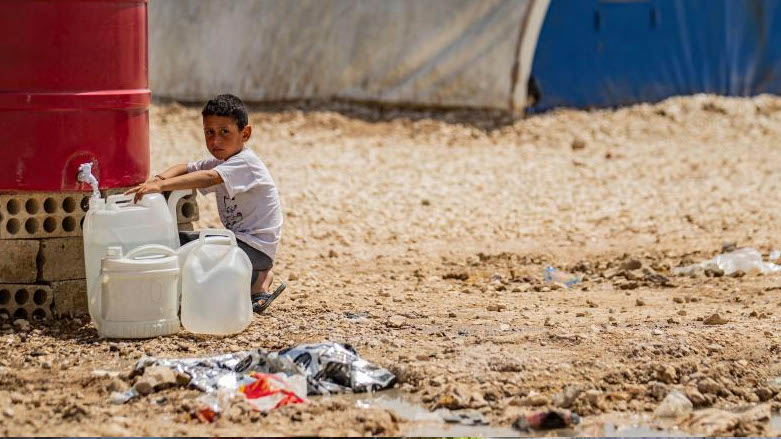UN concerned over draught and cholera outbreak in Syria
"Much of the already vulnerable population of Syria is reliant on unsafe water sources, which may lead to the spread of dangerous water-borne diseases."

ERBIL (Kurdistan 24) – The United Nations Resident and Humanitarian Coordinator in Syria, Imran Riza, on Monday expressed serious concern over the ongoing cholera outbreak in Syria after at least two died from the disease in northeast Syria.
The UN said that between 25 August and 10 September, the surveillance data showed that a total of 936 severe acute watery diarrhea cases were reported in Syria, including at least eight deaths.
According to a report of the EU aid organization ECHO, 17 positive cases and at least two deaths have been reported in two health facilities in Deir-ez-Zour and Raqqa National Hospital. The Autonomous Administration of North and East Syria (AANES) earlier said at least three died in northeast Syria.
Read More: Syria Kurds seek UN help after cholera deaths reported
“The source of infection is being investigated and it is suspected to stem from water from the Euphrates River, and/or an ice-cube factory,” ECHO said.
Also the UN Coordination Riza said “source of infection is believed to be linked to people drinking unsafe water from the Euphrates River and using contaminated water to irrigate crops, resulting in food contamination.”
He added that the outbreak is also an indicator of severe shortages of water throughout Syria. “The United Nations have been sounding alarm bells on this issue for some time,” he said.
“With the Euphrates levels continuing to decrease, drought-like conditions and the extent of destruction of the national water infrastructure, much of the already vulnerable population of Syria is reliant on unsafe water sources, which may lead to the spread of dangerous water-borne diseases, particularly among children,” he warned.
Read More: 'Desert': drying Euphrates threatens disaster in Syria
The Kurdish-led AANES have often blamed Turkey for the decreasing water levels of the Euphrates river, but Ankara has denied cutting the water.
The Human Rights Organization in Afrin in a statement also recently warned that thousands of displaced Kurds from Afrin living in five camps in northern Aleppo, who were displaced by the 2018 Turkish offensive on Afrin have been affected by cholera, including 443 children.
The organization warned the number of infections decreased amidst an embargo by the Syrian government and daily bombardments by Turkish forces, and a lack of medicine.
The UN in Syria calls on donor countries for urgent additional funding to contain the outbreak and prevent it from spreading.
“We urge all concerned parties to ensure unimpeded and sustained access to affected communities, as well as the support of neighbouring countries to expedite the necessary approvals to ensure the timely delivery of life-saving medicines and medical supplies,” Riza concluded.